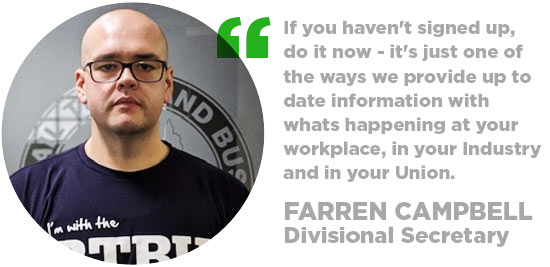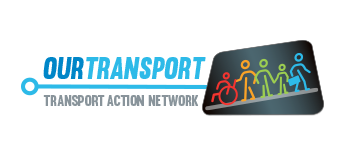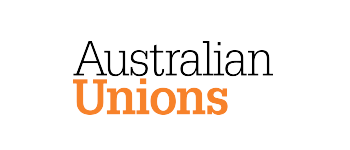COVID-19 Practical Information for Freight Train Crew
Over the past few days many of our members have raised concerns on various matters that impact them in their abilities to perform their job.
Obviously, there will be many issues over the difficult times ahead that will be out of the ordinary and will be difficult to deal with. On all such occasions we suggest that members take time out and think carefully before performing any task or action that may put them, their loved ones or anyone else at risk.
As general guide, if you consider an action is not safe or in any way breaches any of the emergency provisions governments have in place then check with your supervisor, and if not satisfied check with your HSR and or union delegate BEFORE DOING IT!
The following are some guidelines for members to follow:
Loco’s
- Crews should stand back and enforce social distancing requirements with each other when changing over
- Social distancing should be observed at all times including when in a locomotive cab (see social distancing definition below)
- Outgoing crews should wipe down all touchable surfaces of the CAB with disinfectant wipes before change over
- Ingoing crews should wipe down all touchable surfaces of the CAB with disinfectant wipes after change over
- Seal any rubbish you have and take with you
Crew Road Transport
- Crews should stand back and enforce social distancing requirements from each other when changing over
- Government Social distancing standards should be observed at all times including in crew cars, taxi, Uber and any other form of crew transport.
- All forms of crew transport should be maintained to proper cleaning standards and members should advise their supervisor whenever they feel they are being expected to travel in sub- standard transport. Members are encouraged to sit in the back, diagonal to the Driver.
- Outgoing crews should wipe down all surfaces in the car with disinfectant wipes before change over, which includes steering wheels, all controls and door handles.
- Ingoing crews should wipe down door handles and all surfaces in the car with disinfectant wipes after change over, including steering wheels and controls.
Meal Rooms & Facilities
- Enforce and maintain social distancing at all times
- Avoid using common items like bottles of milk, tea and coffee containers.
- Use a disinfectant wipe in your hand to operate items such as hot water urns
- Don’t congregate
- WASH YOUR HANDS REGULARLY AND MAINTAIN PERSONAL HYGIENE AT ALL TIMES
Barracks
While we are emphasising to all companies to minimise barracks working we understand that at this point in time, members may still be required to stay at barracks locations. Major operators have given us assurances that extra cleaners have been brought in for longer hours and deep cleaning is happening at these locations and that where possible, rooms are isolated and are for their employees only.
We encourage all members to immediately check their room on arrival and if there is ANY doubt about its state of cleanliness or hygiene, contact your supervisor.
As an extra precaution we would encourage members to take their own supply of disinfectant wipes and sprays as a backup and also consider taking a thick pillow protector/pillow case.
It is also suggested you avoid straying from your accommodation, take your own food particularly in regional areas as takeaway may not be available and supplies may be in short supply.
Personal Hygiene Products
Rail Transport is currently considered an essential service and as such companies should have no issue in obtaining product. This being said, things are still transitioning and on occasion there may be shortages.
All employees should request their employer to provide them with;
- Personal hand sanitisers
- Face masks
- Gloves
If the company does not provide these please contact us so as we can raise it with them as they have a duty of care to provide and make available at all times proper, suitable and adequate personal hygiene products suitable for the task being performed.
No Personal Protective Equipment (PPE) should be shared.
WHS Responsibilities
WHS Committees in place should be regularly meeting via electronic means. Where changes to procedures and process are being contemplated, normal process should still be followed. That is, normal consultation requirements still apply, HSR’s should be involved in all assessments etc.
HSR’s have a very important role to play at their Depot during this pandemic and need to be taking a proactive approach and ensure they are representing their fellow workers and regularly communicating with their work groups. Any HSR requiring assistance should contact their local delegate or organiser.
Members are reminded they too have personal obligations to ensure theirs and everyone else’s health and safety and should at all times be mindful of doing the right thing.
Quarantine Issues
All operators have put in place programmes to conform with government requirements regarding persons that need to quarantine. Some operators have put in measures in excess of government requirements.
We have had questions surrounding rights of other members in knowing about workmates who have been placed in quarantine. All individuals have an entitlement to privacy and employers also have legal obligations around employee’s privacy. Members need to be aware and understand that some employers and individuals are being extra cautious and are taking additional measures. Just because someone has quarantined, does not automatically mean you are at risk. We have been assured that all operators have stringent screening processes in place to ensure anyone who needs to isolate will do so.
Government agencies also monitor any instances of COVID-19 and contact those that are required to isolate.
Some operators who are actively supporting their employees are providing special leave to cover anyone who has to quarantine due to instances beyond their control. Anyone affected should first discuss the matter with their employer and ask what assistance is being provided. If you then still have concerns please phone your local organiser.
Conclusion
As with everything at the moment, changes are being made at a rapid rate and your Union is doing our best to ensure that all operators are keeping you safe at work.
We acknowledge you are all doing an amazing job under such an intense environment and thank you for your commitment and patience. If you are not seeing compliance with health standards including cleaning products, PPE, Crew Cars, Barracks etc please report it.
Whilst we are committed to supporting members during this time and making sure members have as up to date information as possible, we are all committed to keeping the trains moving as normal as possible and providing employment and ongoing work during this period.
The following is current NSW Government Advice
What is social distancing?
Social distancing means we reduce the number of close physical and social contacts we have with one another.
When social distancing actions are combined with good personal hygiene measures the spread of a pandemic through the community can be slowed. This helps protect the most vulnerable members of the community and reduces the impact of the pandemic on essential, life-saving health services.
Social distancing is an effective measure, but it is recognised that it cannot be practiced in all situations and the aim is to generally reduce potential for transmission.
While practicing social distancing, people can travel to work (including public transport). For non-essential activities outside the workplace or attendance at schools, universities and childcare – social distancing includes:
- Avoiding crowds and mass gatherings where it is difficult to keep the appropriate distance away from others
- Avoiding small gatherings in enclosed spaces, for example family celebrations
- Attempting to keep a distance of 1.5 metres between themselves and other people where possible, for example when they are out and about in public place.
- Avoiding shaking hands, hugging, or kissing other people.
- Avoiding visiting vulnerable people, such as those in aged care facilities or hospitals, infants, or people with compromised immune systems due to illness or medical treatment.
The following has been taken from current Safe Work NSW COVID- 19 advice and guidance for workplaces
Undertake WHS risk management regarding work activities / work design Employers must, in consultation with workers and/or their HSRs:
- Identify and assess the likely risks at the workplace and those associated with the way work is performed (eg: are workers/customers more than 1.5 metres away from each other; layout of workstations; design of work activities; etc)
- Implement suitable control measures to eliminate or minimise risks, this may include encouraging social distancing through flexible working arrangements, reducing non- essential face to face meetings/gatherings and promoting the use of virtual communication channels (telephone/video)
- Expert advice may be required for high risk work environments or tasks
The control measures being used must be regularly reviewed and updated as required:
- A good way to do this is to practice, test and evaluate intervention measures during this early stage, eg: practice social distancing measures and evaluate implementation
Workers must co-operate with their employer in implementing risk control measures and must take all reasonably practicable steps to ensure they don’t do anything that creates or increases a risk to the health and safety of themselves or others.
Regular updates will be issued via Footplates, Locoexpress.com.au and, a soon to be released Locoexpress COVID-19 regular electronic newsletter which will include an overview of what’s happening across the full Locomotive Division Membership.




